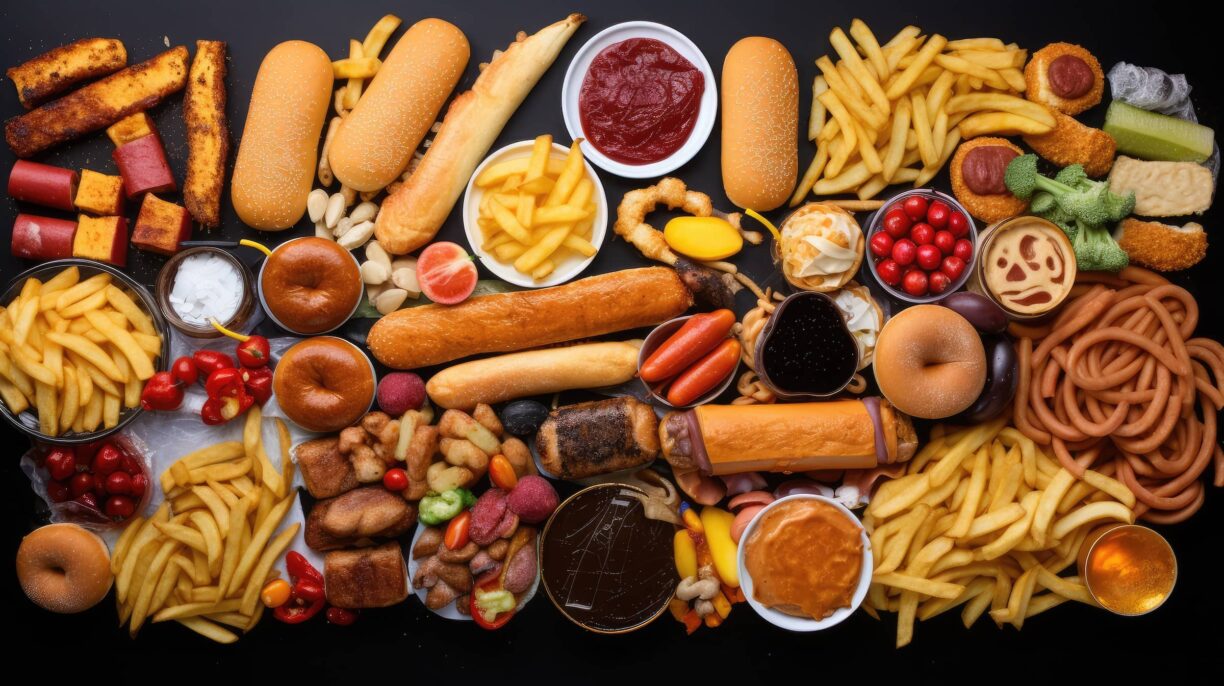If you’re looking to add some serious muscle mass, then you’ll need to make sure your diet is on point.
Here I’ve gathered some key nutritional tips that will help you pack on the pounds in a healthy way.
1. Eat plenty of protein to help your muscles grow
For those looking to increase their muscle mass, protein is an essential component.
Eating protein is an essential part of any muscle-building diet.
Not only does protein help to build muscle, it also helps to maintain your current muscle mass and supports the repair of damaged tissue.
Protein can be found in many foods such as dairy, eggs, nuts and legumes.
Additionally, protein powders are widely available for those who want extra protein that is easy to add to their daily routine.
For those looking for a boost in building muscle, consuming protein throughout the day distributed between meals may be beneficial and will help ensure you are providing muscles with enough protein to support growth.
Eating protein helps to rebuild muscle fibres and protein synthesis, which is necessary for the body to rebuild or repair cells.
Protein is also important for overall health as it supports a strong immune system, regulates hormones, and can even help improve sleep quality.
Eating protein as part of a balanced diet in combination with regular exercise will maximize the effects on muscle growth; protein supplements and shakes offer an extra boost for those seeking to push their muscles just a bit further.
With the right amount of protein and regular workouts, anyone can achieve their fitness goals!
2. Include healthy fats in your diet to support muscle growth
Eating healthy fats can be an important part of any muscle-building routine.
By incorporating sources such as nuts, fatty fish, avocados, and olive oil into your diet, you can provide key nutrients for optimal cell growth and muscle repair.
Healthy fats contain essential fatty acids that help to reduce inflammation and slow food breakdown, allowing your body the opportunity to more fully absorb all the beneficial macro- and micronutrients in your daily meals.
Additionally, including healthy fats in your diet may help keep blood sugar levels stable so that energy is released steadily throughout the day rather than causing spikes or drops in energy levels.
Make sure to include some healthy fat sources in each meal so you can see the best results from your muscle-building efforts!
3. Get enough calories to support your body’s needs
Eating enough calories is an important part of keeping your body healthy.
Without enough energy, the body won’t be able to perform at its best – from the legs to the brain.
This is especially important for athletes, who need to fuel their bodies with enough energy to keep up with intense physical activity.
But sometimes we don’t get enough calories and other nutrients our bodies need.
A balanced diet with plenty of fresh fruits and vegetables can help make sure you’re getting essential minerals and vitamins your body needs to thrive – as well as providing calorie-rich sources that power us through the day.
Taking time each day to prepare nutritious meals and snacks will ensure that your body has what it needs throughout the day, whether you’re an athlete or not.
4. Counting macros
Counting macros in food is becoming increasingly popular as people strive to live healthier lifestyles.
As such, it is helpful to know what macronutrients are and how they can be tracked.
Macros include carbohydrates, proteins and fats, which together provide the energy that fuels our bodies and helps us stay healthy.
Counting macronutrients in food begins by calculating how much of each macronutrient is present in your daily diet — carbs provide the body with energy, proteins help build muscles, and fats are necessary for metabolism.
Once you know your macro-nutrient amounts, you can start calculating how much of each macronutrient is ideal for your own needs.
This helps ensure that you are getting enough of each macronutrient without going over or under the recommended amounts.
Tracking macros can also help highlight possible nutritional deficiencies and make better eating choices.
5. Drink plenty of water to stay hydrated
Drinking plenty of water is essential for staying healthy and hydrated.
Not getting enough water throughout the day can leave you feeling tired, sluggish, and irritable.
Even mild dehydration can impair cognitive performance like reaction time and memory.
Research has also linked dehydration to higher levels of stress hormones which include adrenaline, cortisol, and norepinephrine.
So if you’re feeling stressed or overwhelmed, make sure that you reach for a glass of water first!
Not only will this help to keep your body properly hydrated but it can also have an immediate calming effect on your mind – all with just one simple action.
In conclusion, gaining muscle mass can be a challenge, but it’s important to eat the right foods and exercise regularly if you want to see results.
Make sure you’re getting enough protein, healthy fats, calories, and water every day.
Avoid processed foods and focus on eating whole foods. If you do all of these things, you should start to see an improvement in your muscle mass.
And let me know in the comments what you do to improve your muscle mass.





